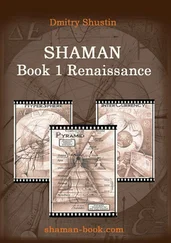‘Why didn’t they report this?’ the old man thought, and immediately realised that he’d already seen the answer somewhere. He leafed through the pages. ‘We have no lines of communication. The phone is dead. Perhaps it’s sabotage. One of the exiles, in revenge? They discovered it before we got here, and at first they flung the sick out into the tunnels. One of them? Did he cut the cable?’
At that point Homer looked up from the letters and stared blindly into space. Let’s say the cable was cut. But then why didn’t they come back to Sebastopol?
‘What’s worse is that it takes a week to develop. And what if it’s longer? And from then to death is another week or two. We can’t tell who’s sick and who’s well. Nothing helps. There’s no cure. The death rate is a hundred per cent.’ A day later the signal officer made another entry that was already familiar to Homer: ‘Tula is in chaos. There’s no way out to the Metro, Hansa is blocking it. We can’t go back home.’ On the next page he continued: ‘The healthy were shooting at the sick, especially the aggressive ones. They’ve built a pen for infected individuals… They resist and beg to be let out…’ and after that a brief, terrible phrase: ‘They gnaw on each other…’
The signal officer was frightened too, but the steely discipline in the detachment prevented fear from spilling over into panic. Even at the focus of an epidemic of deadly fever, a Sebastopol brigade remained a Sebastopol brigade. ‘We have brought the situation under control, sealed off the station and appointed a commandant,’ Homer read. ‘All our men are all right, but too little time has gone by.’
The search party dispatched from Sebastopol had reached Tula safely and, of course, got stuck there too. ‘We have taken a decision to remain here until the incubation period is over, to avoid endangering… Or forever,’ the signal officer wrote. ‘The situation is hopeless. We can’t expect help from anywhere. If we ask Sebastopol, we’ll be condemning our own men. We have to endure it… For how long?’
So the mysterious guard by the hermetic door at Tula had been posted by the Sebastopolites. Then it wasn’t surprising that their voices had seemed familiar to Homer: the watch was being kept by men with whom he had defended the Chertanovo line of approach against upyrs only a few days ago! By voluntarily deciding not to return, they hoped to protect their home station from being infected.
‘Most often from person to person, but it’s obviously in the air too. Some men seem to be immune. It started a couple of weeks ago, many have not fallen ill… But there are more and more dead. We are living in a morgue,’ the signal officer scribbled. ‘Who’ll be the next to die?’ he asked, suddenly breaking into a hysterical shriek. But he took himself in hand and continued steadily: ‘We have to do something. Warn them. I want to volunteer to go. Not to Sebastopol. To find the point where the cable is damaged. And get through from there. I have to get a call through.’
Then several days passed, filled with invisible conflict with the commander of the convoy, silent arguments with other soldiers and mounting despair. The signal officer gathered his strength and recorded in his diary everything that he tried to make them see.
‘They don’t understand how things look from Sebastopol. We’ve been blockaded in for a week now. They’ll send another three men, who won’t be able to go back either. Then they’ll send a large assault team. Declare general mobilisation. Everyone who comes to Tula will be in the risk zone. Someone will get infected and go running home. And that will be the end. I have to prevent an assault! They don’t understand…’ Then another attempt to get the commandant to see sense, as fruitless as all the others before it. ‘They won’t let me go… They’ve gone insane. If not me, then who? Make a run for it!’
‘I pretended that I had calmed down, that I was willing to wait,’ he wrote a day later. ‘I went on duty at the hermetic door. I shouted that I was going to find the break in the cable and ran. They fired on me. A bullet lodged in my back.’
Homer turned the page.
‘Not for myself. For Natasha, for little Seryozha. I wasn’t thinking of trying to save myself. Let them live. So Seryozha can…’ At this point the pen was jerking about in his weakened hand: perhaps he added this later, because there was no more space, or because he no longer cared where he wrote. Then the disrupted chronology was restored: ‘Thank God, they let me through Nagornaya. I have no strength left. I walk on and on. Then I faint. How long was I asleep? I don’t know. Is there blood in my lung? Is it the bullet or have I got the sickness? I can’t…’ The curve of the letters straightened out into a slithering line, like a dying man’s encephalogram. But then he came round again and finished the sentence: ‘I can’t find where the damage is.’
‘Nakhimov. I made it. I know where the phone is. I’ll warn them… They mustn’t! Save… My wife, I miss…’ He splashed his thoughts out on to the paper less and less coherently, punctuated with scarlet blobs. ‘I got through. Did they hear me? I’ll die soon. Strange. I’ll fall asleep. No more bullets. I want to fall asleep before these… They’re standing round me, waiting. I’m still alive, go away.’
The ending of the diary seemed to have been prepared in advance, written in triumphantly vertical handwriting – the appeal not to storm Tula and the name of the man who had given his life to prevent it happening. But Homer could tell that the last thing the signal officer had written before his signal faded away forever was: ‘I’m still alive, go away’.
A heavy silence enveloped the two people huddling close to the flames. Homer had stopped trying to lift the girl’s mood. He sat there without speaking, stirring the ashes with a stick while the sodden notepad died the stubborn death of a heretic and he tried to ride out the storm that was raging inside him
Fate was mocking him. How he had longed to solve the mystery of Tula! How proud he had been of finding the diary, how it had flattered his vanity to come so close, all on his own, to unravelling all the knots in this story. And now? Now that he had the answers to all the questions in his hands, he cursed himself for his curiosity.
Yes, he was breathing through his respirator when he picked up the diary at Nakhimov Prospect, and he was wearing a full-protection suit now as well. But no one knew exactly how the disease was transmitted!
What a fool he had been to scare himself with not having much time left! Yes, it had spurred him on, helped him to overcome his laziness and conquer his fear. But death was contrary, it didn’t like people who tried to dictate to it. And now the diary had set him an absolutely definite deadline: a few weeks from the day of infection to death. Perhaps even an entire month! But there was so much he still had to get done in those pitiful thirty days.
What should he do? Confess to his companions that he was sick and go away to turn up his toes at Kolomenskoe – if not from the sickness, then from hunger and radiation? But if he was already incubating the terrible disease, then Hunter and the girl, with whom he had shared the same air, must be infected too. Especially the brigadier – when he spoke to the sentries on the cordon at Tula, he had come very close to them.
Or should he hope that the sickness would pass him by, just keep his head down and wait? Not simply lie low, of course, but continue this journey with Hunter – so that the swirling tornado of events that had picked the old man up wouldn’t drop him again, and he could carry on drawing inspiration from them.
After all, if Nikolai Ivanovich, that decrepit, useless, mediocre citizen of Sebastopol and former engine driver’s mate, that caterpillar crushed against the ground by the force of gravity, was dying because he had unsealed that cursed diary, then Homer, the chronicler and myth-maker, the short-lived, bright-winged mayfly, had only just appeared in the world. Perhaps he had been sent a tragedy worthy of the pens of the great, and now it was entirely up to him to see if he could manifest it on paper in the thirty days that had been granted to him.
Читать дальше











